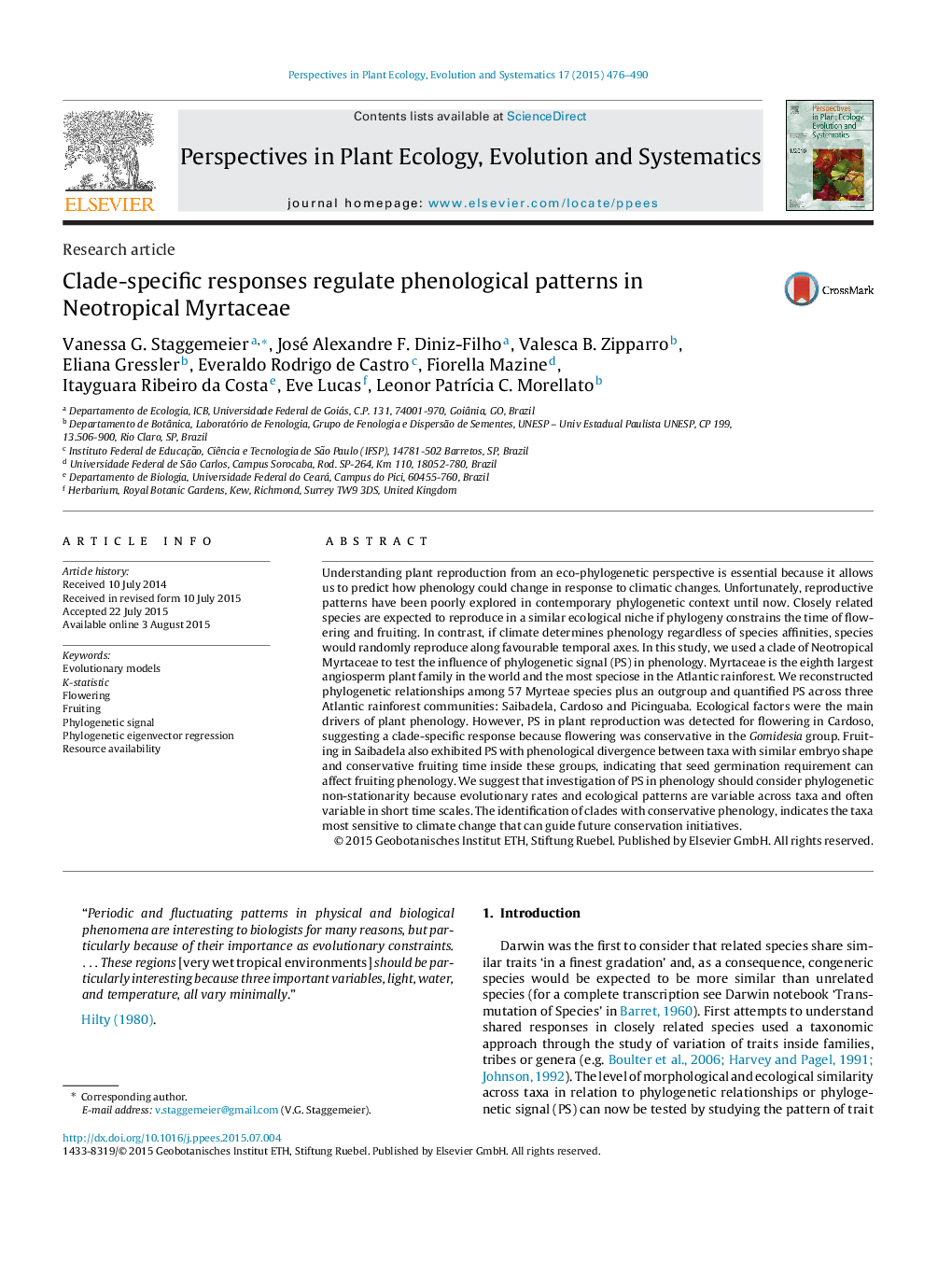| کد مقاله | کد نشریه | سال انتشار | مقاله انگلیسی | نسخه تمام متن |
|---|---|---|---|---|
| 4400946 | 1307036 | 2015 | 15 صفحه PDF | دانلود رایگان |

• Ecological factors drive Myrteae phenology in Atlantic forest.
• Conservative flowering was found in the Gomidesia group.
• Taxa grouped by embryo shape diverge in the fruiting time.
• Seed germination requirement affect fruiting phenology.
• Clades with conservative phenology should guide conservation initiatives.
Understanding plant reproduction from an eco-phylogenetic perspective is essential because it allows us to predict how phenology could change in response to climatic changes. Unfortunately, reproductive patterns have been poorly explored in contemporary phylogenetic context until now. Closely related species are expected to reproduce in a similar ecological niche if phylogeny constrains the time of flowering and fruiting. In contrast, if climate determines phenology regardless of species affinities, species would randomly reproduce along favourable temporal axes. In this study, we used a clade of Neotropical Myrtaceae to test the influence of phylogenetic signal (PS) in phenology. Myrtaceae is the eighth largest angiosperm plant family in the world and the most speciose in the Atlantic rainforest. We reconstructed phylogenetic relationships among 57 Myrteae species plus an outgroup and quantified PS across three Atlantic rainforest communities: Saibadela, Cardoso and Picinguaba. Ecological factors were the main drivers of plant phenology. However, PS in plant reproduction was detected for flowering in Cardoso, suggesting a clade-specific response because flowering was conservative in the Gomidesia group. Fruiting in Saibadela also exhibited PS with phenological divergence between taxa with similar embryo shape and conservative fruiting time inside these groups, indicating that seed germination requirement can affect fruiting phenology. We suggest that investigation of PS in phenology should consider phylogenetic non-stationarity because evolutionary rates and ecological patterns are variable across taxa and often variable in short time scales. The identification of clades with conservative phenology, indicates the taxa most sensitive to climate change that can guide future conservation initiatives.
Journal: Perspectives in Plant Ecology, Evolution and Systematics - Volume 17, Issue 6, December 2015, Pages 476–490